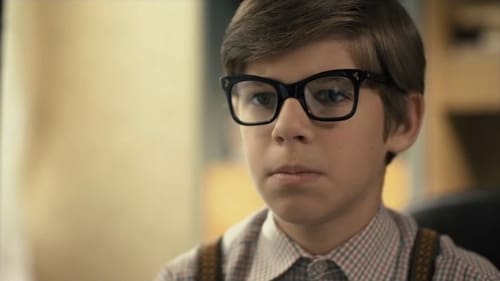Saša Anočić
出生 : 1968-05-19, Osijek, Croatia
死亡 : 2021-05-05

Pjesnik
Drama set in a small provincial town in post-war Croatia about 20 locals who try to understand why one of their neighbors killed himself.

Muškarac u baru
Zagreb Cappuccino is the story of two best friends, Petra and Kika. Both women are in their early forties. Petra, in Zagreb, is getting divorced, and Kika arrives from Cologne to console her. Kika, a cosmopolitan party girl, teaches Petra how to carry on with her life without a husband and a family. Over several cups of coffee and nights out we get to know their fears and problems, their solitude, insecurities and inner strength.

Writer
Six men, one woman (and her brother) come together with one goal - to make the play. It would be probably another common story that this theater group is composed of anti-heroes who float lost in time and space, in a town where it seems that the sun sets in the east. Led by Sasha, a director who has recently returned to his hometown, this group of socially neadaptiranih amateurs starting the fight to their demons and the prejudices that surround them in the society. For dramaturgical template selection western and riding on stereotypes of the genre of the struggle between good and evil, the conflict between civilization and wilderness, the protagonists develop their life stories inevitably influencing and changing each other. Although, as time passes, the show looks increasingly like a mission impossible, almost all of its stakeholders is increasingly seen as a metaphor for their fate and get caught for it as the opportunity of a lifetime .

Saša Anloković
Six men, one woman (and her brother) come together with one goal - to make the play. It would be probably another common story that this theater group is composed of anti-heroes who float lost in time and space, in a town where it seems that the sun sets in the east. Led by Sasha, a director who has recently returned to his hometown, this group of socially neadaptiranih amateurs starting the fight to their demons and the prejudices that surround them in the society. For dramaturgical template selection western and riding on stereotypes of the genre of the struggle between good and evil, the conflict between civilization and wilderness, the protagonists develop their life stories inevitably influencing and changing each other. Although, as time passes, the show looks increasingly like a mission impossible, almost all of its stakeholders is increasingly seen as a metaphor for their fate and get caught for it as the opportunity of a lifetime .

Vladislav Brnčić
Young Koko has just moved with his parents from his idyllic countryside home to a big city. There, with the help of his new friends and a neighbour he investigates the mysterious case of a dead old man who used to live in the flat he has just moved into. Koko and the Ghosts is a family film based on a popular Croatian series of young-adult novels written by Ivan Kušan.

Diler
War. A city under the siege. The truce has been recently signed, and the squad known as the 'Blacks', who used to do the dirty jobs, needs to be disbanded. Ivo, the squad commander who has lost three of his soldiers, prepares the action to retrieve their dead bodies from the forest and, despite the ceasefire, blow up the dam, thus causing a great damage to the enemy: The survived members of the squad, tortured by their personal doubts and guilt, move into action. On the battlefield, they find the enemy they are searching for is in the place they least expect - inside themselves.

Siniša Glavašević
Illustrates the story of the siege of the Croatian town of Vukovar by the JNA and Serbian paramilitary forces in the autumn of 1991.

Boris
A homeless man who lives in abandoned bus finds out that his daughter comes from Germany to meet him for the first time in twelve years. Ashamed of his present situation and unable to cope with it, he breaks into apartment of his rich ex-friend who is involved in criminal activities.

Nándor
The adventures of a young man as he moves from the Latin-American revolutions in the sixties and seventies, through Hungary in the eighties, to the Croatian war in 1991.







